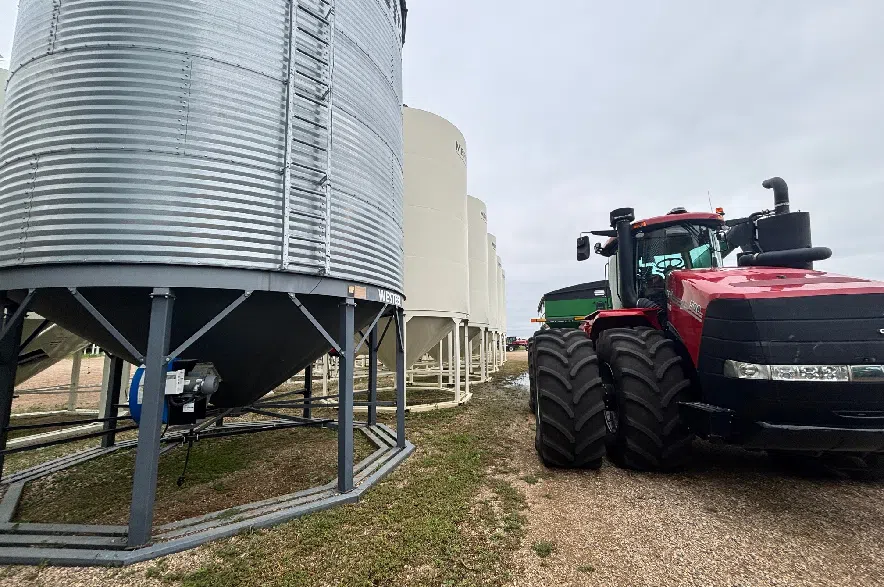The federal budget released on Tuesday has drawn a muted reaction in Saskatchewan.
The budget tabled Tuesday prioritized capital project spending over programs and services and projects a $78.3-billion total deficit — the amount of money spent by the government beyond its revenues — for this fiscal year. The figure would steadily decrease to $56.6-billion by 2029-30.
Read more:
- Budget 2025: Key numbers from the Liberals’ latest spending plan
- Liberal budget earmarks billions for ‘bold and swift action’ to meet U.S. disruption
- Budget 2025: Ottawa to end investment transfer fees in hope of more competition
‘Agriculture seems to be taking a back seat’
Bill Prybylski, head of the Agricultural Producers Association of Saskatchewan (APAS) said he was somewhat disappointed that agriculture didn’t have more of a “prominent” view in the federal budget.
Prybylski said APAS will keep trying to better its understanding of the budget’s agricultural commitments, but said his early impression still left much desired.
“It is mentioned, and there’s some money being invested in things that will help producers, but still agriculture seems to be taking a back seat to a lot of the other industries in the country and that in itself is a little disappointing,” Prybylski told
The federal government announced more than $639 million in support for agriculture, fish and seafood over five years.
For agriculture, the government of Canada announced:
- $109.2 million in 2025-26 for the federal/provincial Agristability Program – increasing the compensation rate from 80 to 90 per cent.
- $75 million over five years for the AgriMarketing Program (starting in 2026-27).
- $97.5 million over two years for the Advance Payments Program to temporarily increase its interest-free limit.
Prybylski said some of these announcements can help some producers, especially if they find themselves in a significant “economic wreck”.
He also praised the increase in the compensation rate.
“At the same time, there’s a lot of other things with the Agri-Stability program that need a little bit of fixing before it becomes a program that’s a benefit to a lot of producers,” he said.
“The way the program is designed, it’s not necessarily helping out all of the producers that need help from the program and the timing to get that help usually takes around 18 months before the payments are processed and farmers get that money back in their hands.
“For a lot of producers, they need those funds now to pay the bills for this haul for taxes and rent payments, those types of things.”
‘A wasted opportunity’
Business commentator Paul Martin said when looking at the government reduction side of the budget Finance Minister Francois-Philippe Champagne and Prime Minister Mark Carney “wasted an opportunity.”
“Canadians are quite unsettled about what’s going on with tariff wars,” Martin said.
Carney “called on his troops to come up with a 15 per cent reduction in operating costs, and by the time you look through this, it’s more like two per cent,” he said.
Martin also said the large deficit in the budget means future taxes for Canadians down the road.
Martin said there is a risk when money is continually printed and government debt is racked up to make ends meet.
“It means there are more Canadian dollars in circulation, which makes each of them less valuable, and it means less purchasing power for you and I as average Canadians.”
Martin also said the budget has potential to boost economic growth.
“The devil will be in the details, and we’re starting to find some details that say a lot of this is going to be downloaded onto the provinces and the local governments,” Martin said.
Saskatchewan Premier Scott Moe did not comment on the budget Tuesday, but previously said he expected a “significant” deficit because of tumultuous time Canada has recently experienced with trade.
“There’s been some significant deficit-fuelled expenses or investments over the last number of years that you can’t change in one year. Second to that, I would say that in the short term, the Canadian economy is really struggling in this uncertain time,” Moe told reporters last week.
— with files from 650 CKOM’s Mia Holowaychuk, 980 CJME’s Daniel Reech and The Canadian Press
Read more:











